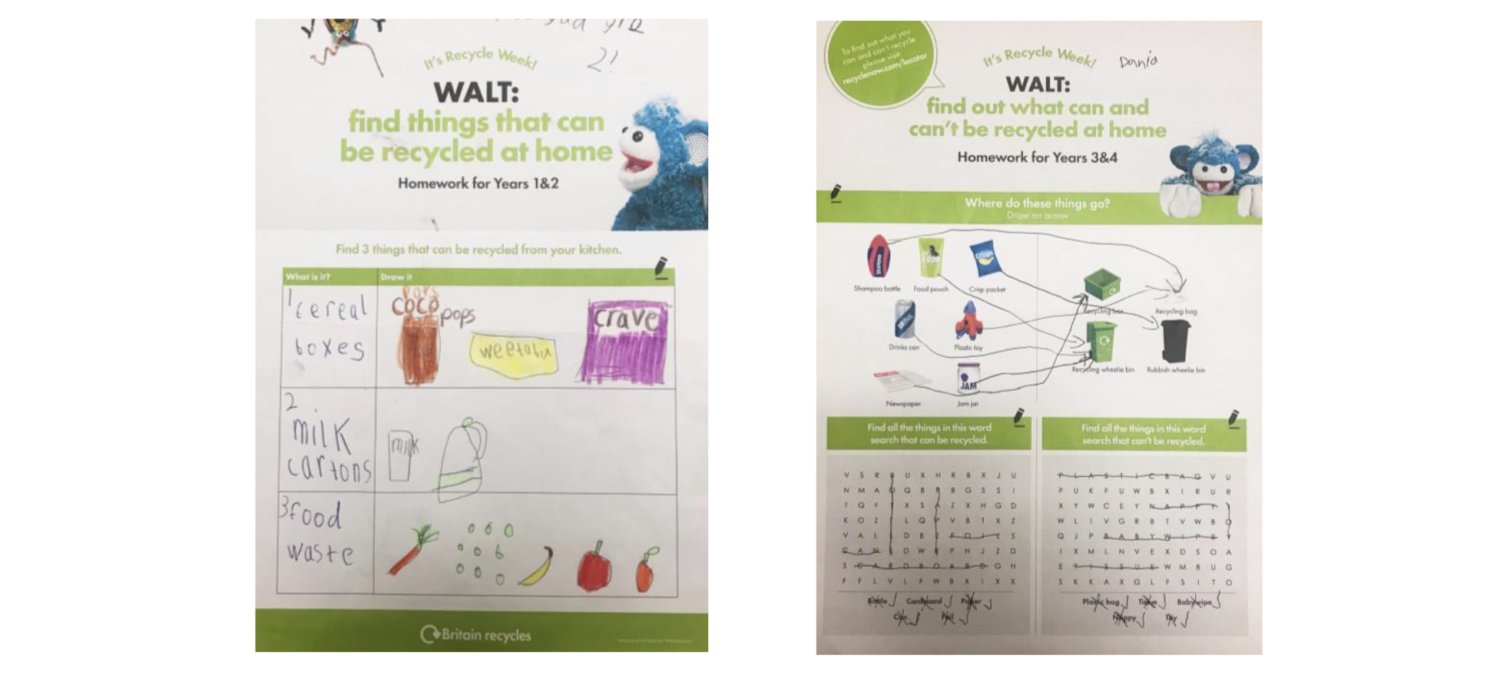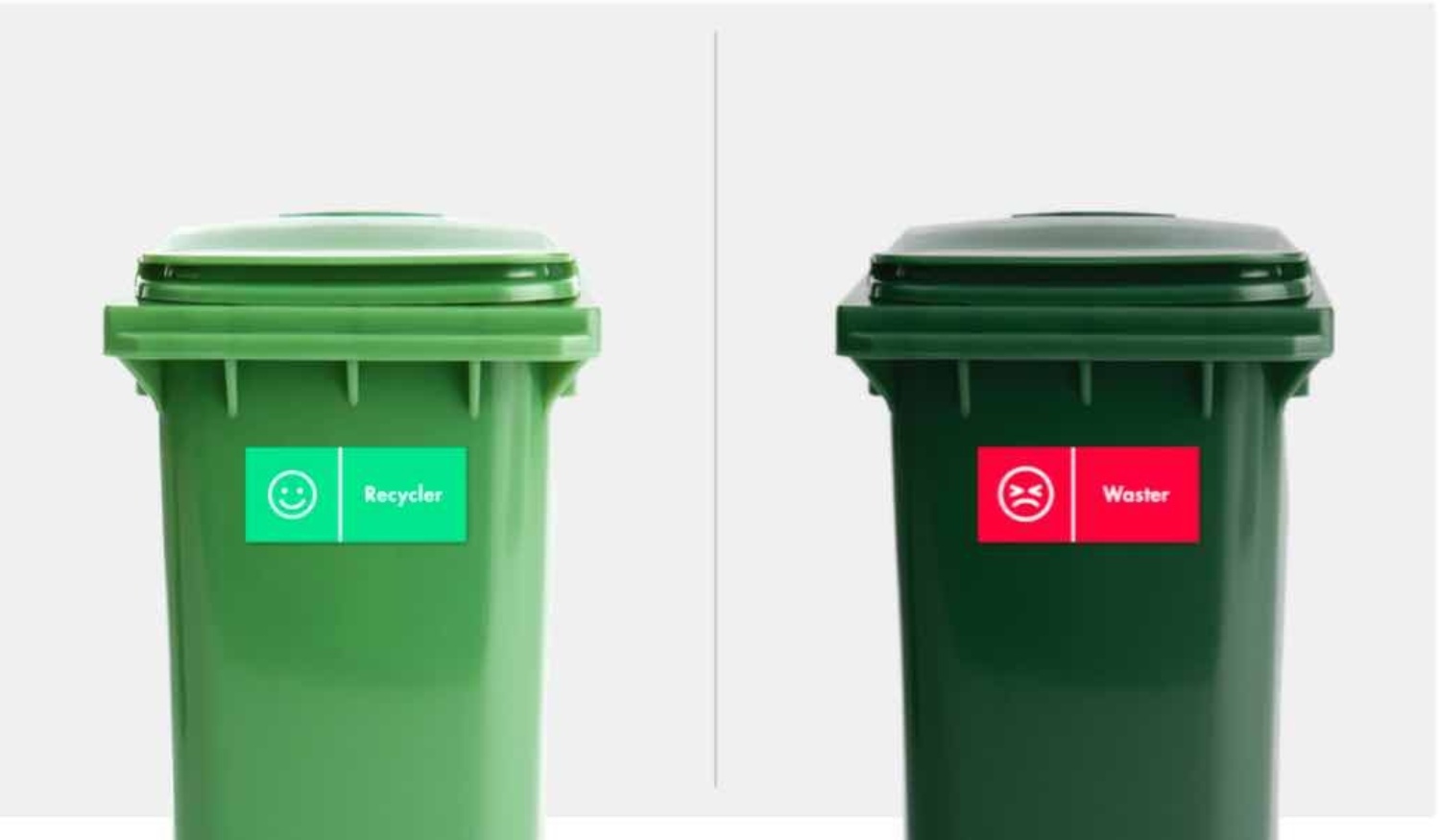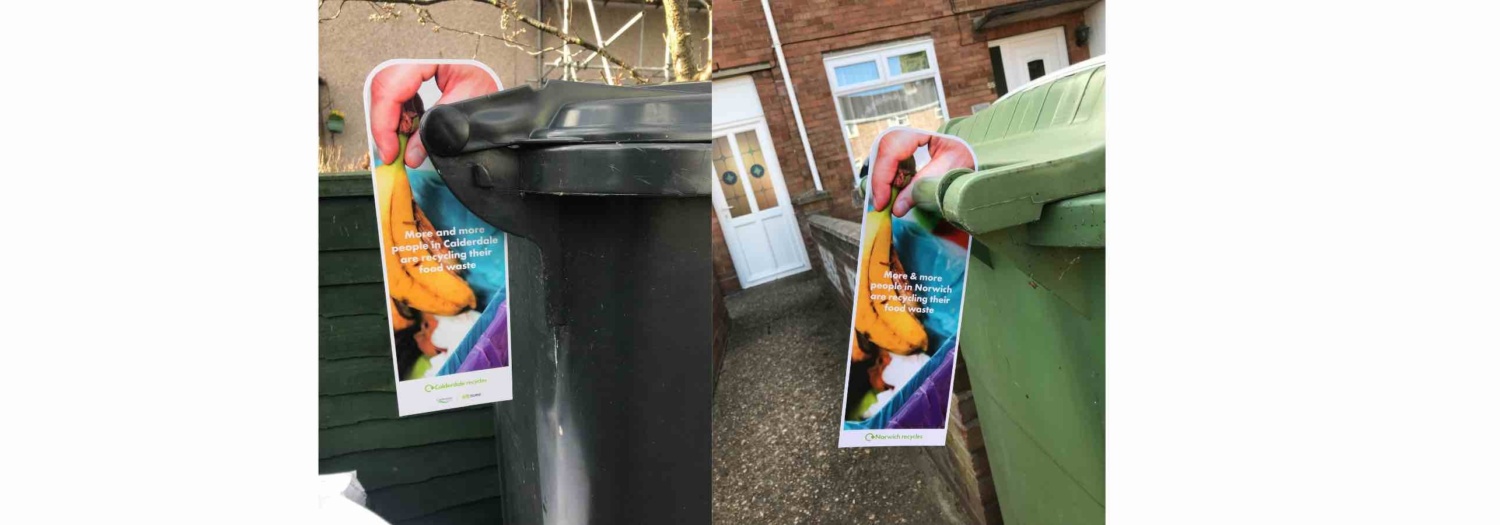Background
While recycling has become a mainstream behaviour in the UK, we are still below national targets and in recent years rates have plateaued. Since 2017 we’ve led WRAP’s behaviour change interventions work on recycling. This has involved collaborating on a new behaviourally-led comms campaign for Recycle Now and developing a series of intervention pilots across WRAP’s strategic priorities.
A new Recycle Now campaign
Recycling rates have plateaued in the UK and with spending and local services being cut a new approach was needed to boost recycling; conventional communications have achieved some successes over the years but seemed to have reached their limits. Building on established behavioural theory, we built a new way of thinking about recycling communications. Evidence from psychology and behavioural economics studies showed us that more education wouldn’t lead to significant change and trying to make people excited wouldn’t work either. Instead, we built an approach based on social norms – the idea that we are strongly influenced by what others do (or at least what we think they do). We designed new normative messaging to make people feel like everyone else recycles and therefore they should too.
Our partners, design agency Radley Yeldar, lead on the implementation of this approach through the Recycle Now comms campaign. A toolkit of messaging and assets has been adopted by businesses and local authorities around the country. Recent Recycle Weeks have been the most successful ever in terms of the number of partners involved and audience reached.
Meanwhile, we delivered a series of behaviour change pilots to test innovative new ways to encourage recycling across WRAP’s strategic priorities. These were robustly evaluated with the aim to nationally scale up those that prove successful. While not all the results are published externally by WRAP, examples of this work include:
1. TACKLE MISSED CAPTURE OF PLASTICS FROM BATHROOMS
Many people are now used to recycling items from their kitchens, however recycling from the bathroom isn’t as common. Most local authorities accept plastic bottles, meaning that lots of products like shower gel and shampoo end up as missed capture. 34% of people who regularly purchase bathroom plastic bottles put at least some in the general waste.
In this randomised control trial, we tested whether providing people with a timely reminder to recycle is effective. Working with Boots, we designed a sticker to go on the front of a shower gel bottle which, as well as prompting people in the right place at the right time, uses a social norm, that most people recycle their bottles.
The RCT was run with treatment and control groups of 4,000 customers each and has delivered very encouraging evidence. 91% in the treatment group recycled their bottle, compared to 86% in the control group. This is statistically significant (to 99% confidence) and strong evidence of the effectiveness of the sticker.
Messaging like this on front of pack could lead to millions more bottles being recycled. WRAP is now working with manufacturers and retailers to scale the intervention.

2. CREATE NEW FAMILY NORMS THROUGH SCHOOLS
This pilot tested the delivery of a simple, scalable, intervention through schools and aimed to prove its power to change home recycling behaviour.
We developed a set of homework sheets for children from Reception up to Year 6. These were designed to promote a family conversation about recycling, encouraging children to investigate their current system with their parents, finding out what can and can’t be recycled and what common mistakes are made.
The homework sheets were piloted during Recycle Week 2018, with five schools distributing the sheets and two further schools acting as controls. Following encouraging results demonstrating a change in family recycling behaviour, in 2019 we then tested the intervention at scale, successfully trialling delivery to a large number of schools through a local authority partner. Publication of results is pending.

3. CHANGE PERCEPTIONS OF RESIDUAL WASTE
This intervention uses a social norms approach to change the perception of the general waste bin and lead to an increase in recycling without also increasing contamination.
Working with a Local Authority partner, we created sets of bin stickers using emotive language, colour and symbols to reframe the ‘normal bin’ as undesirable. An accompanying leaflet was also designed to communicate simply to residents what can and can’t be recycled at present.
The two sets of designs were piloted over 4 rounds, with an expanded trial building on initial encouraging results. Publication of results is pending.

4. NUDGE PEOPLE TO RECYCLE FOOD WASTE
Increasing the amount of food waste collected is a target for a most local authorities. For this pilot we worked with two Local Authorities to test an intervention which targets only those households not currently recycling food waste and encourages them to do so in the future.
We designed a bin hanger drawing on social norms and the principle of making the behaviour as easy as possible. The back of the hanger broke down into simple steps what people need to do to start recycling their food waste, including ordering a caddy, and a reminder of what can and can’t go in it.
Residual waste collection crews identified households who hadn’t put out a food caddy and attached the hanger to their bin. This process meant that we were able to target those only those who didn’t currently recycle food waste and could also tap into the behavioural principle of ‘right place, right time’ to catch people’s attention when they would be already thinking about waste.
